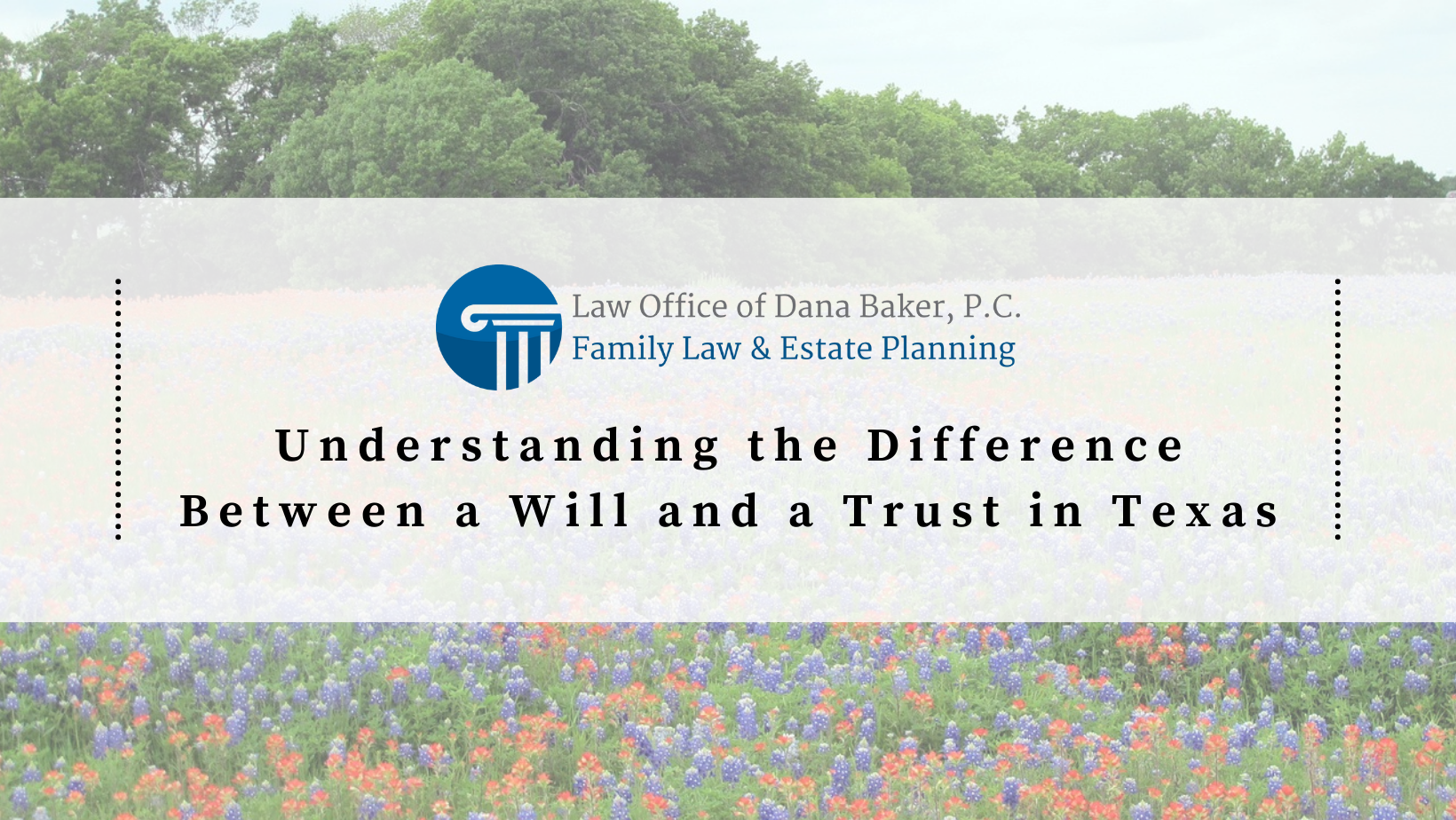One of the most common questions posed by clients delving into estate planning in Texas is, “What’s the difference between a will and a trust?” It’s an essential distinction to understand, as these are two fundamental tools in the estate planning toolbox, each serving unique purposes and offering different benefits.
Will vs. Trust in Texas: Understanding the Key Differences
In Texas, as in other states, estate planning is an essential component of managing one’s assets and ensuring they are distributed as desired upon death. Two of the most common estate planning tools are wills and trusts. While they serve related purposes, they operate differently and offer unique advantages. This article will delve into the distinctions between a will and a trust in Texas.
1. Definition and Purpose
- Will: A will is a written document that specifies how a person’s assets should be distributed upon their death. It also allows for the naming of a guardian for minor children.
- Trust: A trust is a legal entity in which one party (the settlor or grantor) places assets under the control of another party (the trustee) for the benefit of a third party (the beneficiary). Trusts can be set up for various purposes, including tax planning, asset protection, and ensuring that specific conditions are met before assets are distributed.
2. Establishment and Validity
- Will: In Texas, for a will to be valid, it generally needs to be in writing, signed by the testator (or another person on the testator’s behalf), and witnessed by at least two competent individuals over the age of 14. There are exceptions, such as holographic wills, which are written entirely in the testator’s handwriting and don’t require witnesses.
- Trust: Trusts can be more flexible in their creation but must meet certain conditions to be valid. The main requirements are a clear intention to create a trust, a specific property or asset, a definite beneficiary, and a competent trustee.
3. Probate Process
- Will: One of the most significant differences between a will and a trust is the probate process. When a person dies with a will, the will typically goes through probate, a court-supervised process in Texas that validates the will and oversees the distribution of assets. Probate can sometimes be lengthy and costly.
- Trust: Assets placed in a trust typically bypass the probate process, allowing for a quicker and more private distribution of assets. This can save time and money for the beneficiaries.
4. Timing and Flexibility
- Will: A will only becomes active upon the death of the testator. It cannot manage assets during the testator’s lifetime.
- Trust: A trust can be active during the grantor’s lifetime (living trust) or activated upon their death (testamentary trust). Living trusts, in particular, offer flexibility in managing assets during the grantor’s lifetime and can be beneficial if the grantor becomes incapacitated.
5. Privacy
- Will: Wills become public record once they go through probate. This means that anyone can access the details of the will, which can sometimes be undesirable for families valuing privacy.
- Trust: Trusts, on the other hand, are private documents. Their terms and assets are not typically disclosed to the public, ensuring a higher degree of confidentiality.
6. Costs and Maintenance
- Will: Initially, drafting a will is usually less expensive than setting up a trust. However, potential probate costs might offset this initial saving.
- Trust: While establishing a trust can be more costly upfront, the savings from avoiding probate and the benefits of more efficient asset management can make it a cost-effective choice in the long run.
Conclusion
Both wills and trusts offer valuable tools for estate planning in Texas. Choosing between them should be based on individual needs, the complexity of one’s estate, and personal preferences. Consulting with an experienced estate planning attorney can help individuals make informed decisions about the best tools for their specific circumstances.
